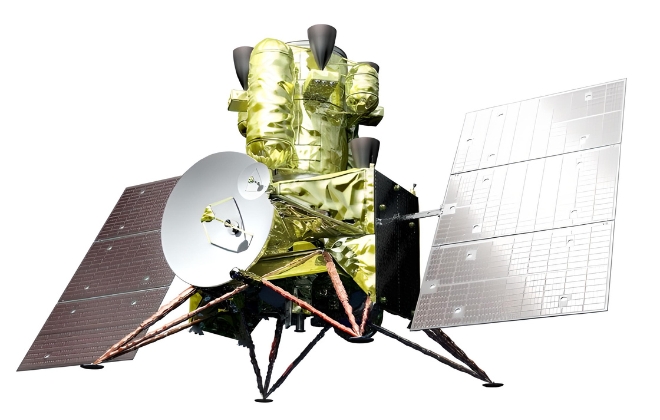The times in which we live make us aware that it is mainly our methods of production, consumption and activities that contribute to global warming, and thus in some way to the deterioration of our own health. As a reminder, the 2018 IPCC (Intergovernmental Panel on Climate Change) report which argues in favour of limiting global warming to 1.5°C is unequivocal: each half-degree matters and we must take immediate action, all together!
12 DECEMBER 2015: 195 countries attended the COP 21 in Paris and signed an international agreement to keep global warming below 2°C and reduce greenhouse gases.
3 NOVEMBER 2019: 20 million people in New Delhi were blanketed by a choking smog so thick that planes were diverted to neighbouring airports. That day, in the Indian capital, the concentration of PM 2.5 fine particles in the atmosphere hit 810 micrograms per cubic metre of air, a rate more than thirty-two times higher than the WHO (World Health Organization) recommendations!
A question of life or death

Is India an example of what we can expect for the planet’s future? How can we change the destiny of mankind? What are our levers for action?
So many questions which become more pressing with each passing day, while the evidence piles up: a recent study published by the European Society of Cardiology (1) for 2015 revealed that in Europe, fine particles and ozone would claim many more victims than previously estimated: almost 800,000 people a year. Globally, there would be 8.8 million additional deaths.
“That means that air pollution causes more deaths per year than smoking tobacco,” says Professor Thomas Münzel , co-author of the study. “As most fine particles and other air pollutants in Europe come from burning fossil fuels, we must urgently switch to other energy sources,” his colleague, Pr. Lelieveld , argues.
Towards a new industrial revolution
Yet oil, which since the 1950s has become the world’s most important source of energy, still meets over 30% of energy requirements. It remains by far and away the main raw material used to make transportation fuel and is omnipresent in the petrochemical industry, even though its decline is inevitable due to the depletion of deposits.
According to the American essayist and economist Jeremy Rifkin (2): “The civilization of fossil fuels, which is at the base of the first two industrial revolutions, is collapsing in real time and it is the governments that must create the infrastructure for the industrial revolution of the twenty-first century.”
He calls for nations to create environmentally friendly banks and regions to set up their own banks for issuing green bonds “that will attract investment funds looking for stable longterm returns”. For decarbonisation is an absolute must if we want our planet, and mankind, to have a future.
Greater global awareness…
Times certainly have changed since 1979 when volcanologist Haroun Tazieff was simply met with disdain and amusement when he predicted the forthcoming greenhouse effect.
Since the 2015 Paris Climate Agreement, nearly every country on the planet has made a commitment to take action and limit global warming. “Every one of us is certain that it is our activities (fossil fuels, deforestation, agriculture, industry and cement manufacturing) that are contributing to the increase in carbon dioxide and methane (two main greenhouse gases) and therefore to global warming,” explained Jean Jouzel, a prominent French climatologist and glaciologist and former vice-chair of the IPCC Scientific Council when he spoke on France Culture last October.
… But results are lagging behind

However, the Paris Agreement is proving difficult to implement. The nations made a commitment to immediately plan the reduction of their CO2 emissions (with China obtaining a deferral for after 2025), but today we see that many of them are lagging behind on the path to energy transition which entails an exit from carbon-based fossil fuels, coal in particular.
So as Jean Jouzel warns, “if we want to limit global warming to around 2°C, we must take urgent action in a very pro-active way and use all the tools at our disposal”.

In spite of the indisputable findings, many questions remain over the solutions to be implemented, experts have differing opinions, a large number of political leaders are still dragging their feet and citizens are often ill-informed. A BVA survey in June 2019 revealed that 69% of French people think that nuclear energy contributes to greenhouse gas production. And yet, as Yves Bréchet , the High Commissioner for Atomic Energy from 2012 to 2018, recalled in Le Point (3), “nuclear energy produces 200 times less carbon dioxide than coal, 100 times less than gas and the same amount as wind power. Even the IPCC pointed out in its 2018 report that we will not do without nuclear energy”. Halting net CO2 emissions in less than 40 years is a major global challenge , but a number of experts agree that it is technically achieveable and at an acceptable cost. Provided, as pointed out by Pierre Papon , ex-Director General of the CNRS (the French National Centre for Scientific Research) in his blog (4), it is understood that “energy transition has 3 dimensions – scientific, industrial and socio-economic. These must be simultaneously and consistently taken into account”.
“2015 was a turning point when suddenly everyone realised that we had to act fast. The actions taken by Greta Thunberg and some of the world’s youth are having a snowball effect. Suddenly, everyone, or almost everyone, feels involved. And that’s a good thing.” Dominique LECOCQ – VP Ecosystems & Communications at Air Liquide Hydrogen Energy World Business Line
Read on to learn more about this topic: “Climate emergency: take action, yes… but how?“
(1) European Heart Journal. Cardiovascular disease burden from ambient air pollution in Europe reassessed using novel hazard ratio functions
(2) Jeremy Rifkin, The Hydrogen Economy, after the end of oil, the new economic revolution, Paris, La Découverte, 2002.
(3) Le Point. Réchauffement : les Français accusent le nucléaire
(4) Blog by Pierre Papon. Energy transition in political upheaval

Discover this 7th edition of Eurêka, dedicated to the industrial strategies
that will allow to achieve a low-carbon economy.












